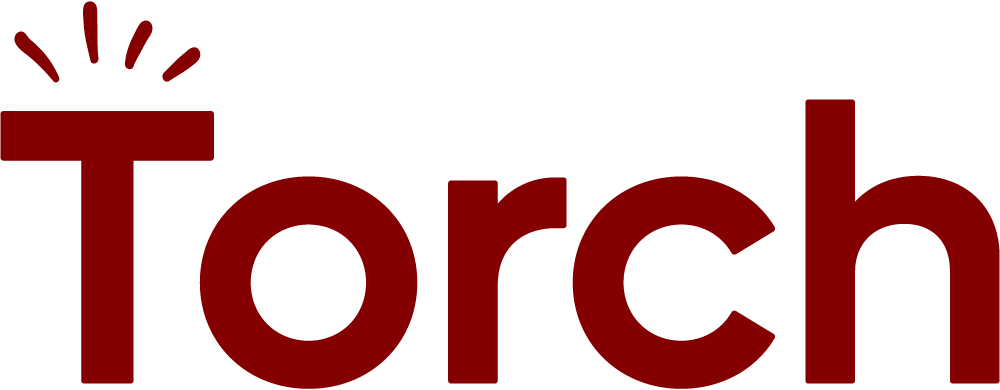The results are in: employees are not satisfied at work. A 2022 report found that 60% of people felt emotionally detached at work. And 19% of those respondents went even further, reporting that they were “miserable” at their jobs. The same report also found that in the US, 50% of workers felt daily job-related stress.
In a candidate’s market, the solution feels easy—just find a new job. But the recent economic slowdown (and all the layoffs that have come along with it) has upended the power balance.
However, there’s one resource many dissatisfied employees haven’t explored: career coaching. If your career is making you feel trapped, disillusioned, or in a rut, career coaching is an effective way to figure out what’s next and land a job that feels aligned to your values.
In this guide, we’ll take you through the ins and outs of career coaching: when it’s most effective, how to get the most out of the experience, and what to look for in a career coach.
What good career coaching looks like
If you’ve never worked with a career coach before, it might be difficult to know what to expect. Will it be hours and hours of trying to describe the specific color of your parachute? Will it be like a therapy session, but without the recollection of childhood memories?
Every career coach — and thus, every career coaching experience — is different, but a good career coach can help you address a number of topics, such as:
1. Overcoming paralysis and envisioning a future you’re excited about
Often, dissatisfied employees develop a sort of near-sightedness that fixates on their present circumstances and prevents them from thinking about future possibilities. A career coach can help by bringing in a fresh perspective and a new point of view.
Leang Chung, Career First Coach and Founder of Pelora Stack, does exactly this with her clients. As she writes in Forbes, she helps clients “understand what is getting in the way of progress, what aspect of [their] current role is dissatisfying, what type of career change [they’re] looking for, or how to define what a fulfilling career looks like for [them].”
If your career coach can help you feel excited about the possibilities that lie ahead, your coaching is off to a great start.
2. Recognizing your values and how you want to embody them through your career
Many people feel at odds with their career because it doesn’t align with their values. A career coach can help you identify and clearly express your values, then be intentional about how to steer your career towards them.
Taking the time to deeply consider your values alongside your coach is essential. When left unexamined, it’s easier to fall back into the same career patterns and continue feeling dissatisfied.
3. Building a plan for the future you want
Envisioning your ideal career is one thing. Fulfilling that vision is another. A good career coach will help you break down the next steps in your career journey, from re-engineering your resumé, to sharpening your interview skills, to drawing a detailed map for how you’ll get to the career you want in five years’ time.
Remember, once coaching is over, you’ll be left to your own devices. Ultimately, it’s important that you leave your coaching relationship feeling like you have an actionable framework you can move forward with on your own.
When is the best time to hire a career coach?
While feeling job dissatisfaction is a clear sign you may benefit from hiring a career coach, it’s only one part of the equation. You can feel dissatisfaction for a number of reasons, some of which warrant a career coach, and some of which may signal a different problem.
Before we do anything else, let’s try to answer a fundamental question: “Do I actually need a career coach right now?”
If you’re ready to work with a career coach, you may be feeling any combination of the following:
- You feel stuck, unmotivated, or confused about why your career isn’t progressing the way you want it to: Some have called it “job angst”—the feeling of being bored or frustrated with your job, but not sure of what to do with that feeling. If you’re at a loss for coming up with answers on your own, a coach can help you fill in the blanks.
- You feel you’ve exercised all your options at your current job: Maybe you’re feeling like a promotion isn’t in the cards for you. Maybe it is, but the prospect of progressing to the next level doesn’t excite you. A coach can help you figure out why you may be stalling, and whether a new set of circumstances might make you feel differently about your future.
- You’re dreaming of a different career but don’t know how to get there: It can be tough to know how to carry your current skills into a new career. Marlo Lyons, a certified career coach, touched on this in her Harvard Business Review article. She writes, “A career coach can help you position your skills in the context of a potential role — especially transferable ones that don’t match up exactly with what’s in the job description.”
- You want to break into a new career, but you don’t feel ready yet: If you’re feeling overwhelmed at the idea of walking down an entirely new career path, know that a career coach can act as a trusted guide in helping you get to your destination. Whether it’s helping you figure out training and credentials, making new connections, or reshaping your resume, you won’t have to do it alone with the help of a coach.
Sometimes, job dissatisfaction can raise a false flag. It’s not your career you’re dissatisfied with, but your circumstances. Here are some signs it may not be the right time for a career coach, but instead, a different course of action.
- You’re actually experiencing burnout: Career dissatisfaction and burnout can look very similar. There are clues that can help identify burnout as the culprit. Often, burnout accompanies the feeling of an unsustainable workload. Would you still be passionate about your work if your level of busyness was reduced? If so, maybe what you really need is an honest conversation with your boss.
- Your environment doesn’t feel supportive: Often, a chaotic and unsupportive environment can make us feel like we’re in the wrong career. It’s important to take a step back and ask yourself, would I feel different under more effective management or a more supportive culture? If the answer is yes, it may be time to speak up. Pointing out what you need can be a great first step in changing your environment for the better.
- You’re ready for more responsibility: Could it be that you’re bored? Maybe you’re feeling dissatisfied because you’ve outgrown your current role and you’re ready for more. Again, talking to your boss can be a great first step to finding a solution. You may want to suggest a different kind of coaching that can help you fulfill your potential and move to the next level.
If you’ve considered each of these scenarios and decided that career coaching is your next step, it’s time to start thinking about how to approach your experience.

How to get the most out of career coaching
At its best, coaching is a guided experience that requires reciprocity — your coach helps to guide you on your own way forward, rather than prescribing you a path. That’s why it’s important that you come into the experience ready to give it your all. Here are five ways to get the most out of career coaching:
1. Be an active participant
If you’re expecting someone else to give you the answers, you’ll be disappointed. If you’re serious about discovering a new chapter of your career, bring your whole self into the experience. Listen to the questions your coach asks you and be honest about your answers. After all, career coaching is about finding the best outcome for you. Your input isn’t just nice to have, it’s necessary.
2. Be a stickler for certification
Anyone can call themselves a coach, but few can coach effectively. Make sure you find a coach with the right accreditation—the International Coaching Federation (ICF) is internationally recognized, and its members have met the requirements to offer effective coaching. Here at Torch, all of our coaches are ICF-accredited and bring to the table diverse backgrounds and experiences.
3. Find a coach with a proven track record
Who has your coach coached? Don’t be afraid to get in touch with people your coach has worked with and ask them about their experience (a good coach will offer to connect you). What challenges did participants overcome with this coach? What are they doing now? How did the experience transform them?
4. Be ready to challenge your core beliefs
Most people need career coaching because they’re feeling stuck. Often, this is because of unhelpful patterns we can’t help repeating. A great coach will help you break out of harmful cycles by challenging the beliefs that got you there in the first place. If you’re open to change and ready for discomfort, you’ll be surprised and delighted with the outcome.
5. Find a coach that makes you feel excited about your future
A coach can help you build a detailed strategy for how you’ll move forward, but if you’re not excited about it, it’s next to useless. The right coach should make you feel inspired and excited—like your future-state is attainable.
Career coaching can give you the boost you need
Career dissatisfaction is rampant, but it doesn’t have to signal a dead end. If you feel unfulfilled in your current role, a career coach can give you the tools, perspective, and roadmap you need to advance to the next phase of your career—one that will hopefully bring you more joy, less stress, and a future you feel hopeful about.
If you’re ready to see how coaching can help everyone in your organization thrive, learn more about Torch’s coaching services and request a demo here.

